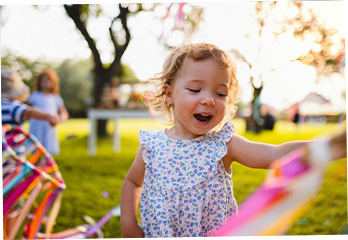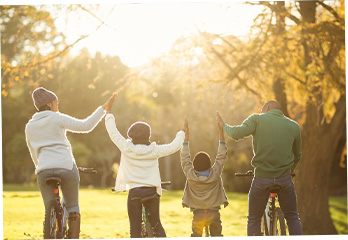Although it may be tempting for you to ask questions and read food labels on behalf of your child, remember that you are building for the future. Patience is important. Helping your child to avoid their problem allergen from an early age (for example, by teaching them how to read food labels) will prepare them for the months and years ahead. Furthermore, letting them know they have a say in decisions will give them the confidence to speak up and ask questions.
Try to encourage a gradual shift towards your child taking more responsibility for management of their allergy. Involve them in discussing their allergy appointments and encourage them to prepare any questions they have for the doctors, nurses and dieticians in advance. Children need to learn to prepare for new challenges, such as managing their own medical kit and knowing how to use an adrenaline auto-injector. Children need to feel they can carry their medical kit without embarrassment.
When you are planning to eat out, involve your child by researching menus online together and discussing options available on the menu and what questions to ask at the restaurant. You could call ahead to the restaurant and let your child know you have done this.
You could invent ‘role play’ games for your child by practising communication with others – for example, how to order food safely when you eat out or how to talk about allergies at a friend’s house or a party.
Creating a written care plan together with your child can be a great way to help them understand their allergy and have more confidence. The care plan could include what they are allergic to, recognising the symptoms that may occur, and what they should do if a reaction happens.
Education is essential to empower your child to have the confidence to tell others what they are allergic to and to discourage sharing of food. Ideally you want to raise a child who asks questions and makes independent decisions, regardless of pressure from friends and acquaintances. A child with a positive attitude will have fewer problems. To achieve that, it is important to begin early to lay the groundwork.





















